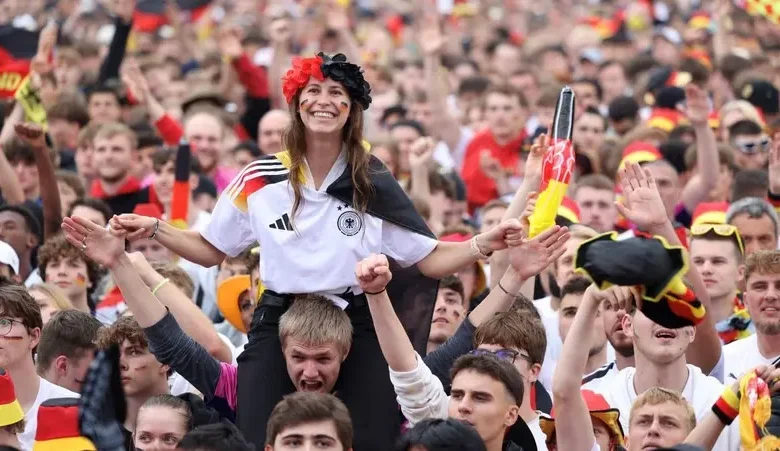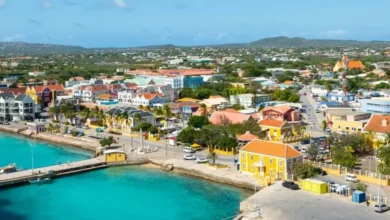Germany celebrates end to successful Euros despite no fairy tale for hosts

German organizers of the Euro 2024 tournament will breathe a sigh of relief after Sunday’s final between Spain and England, having delivered an event without major issues but having failed to replicate the success of the 2006 World Cup on home soil.
The Euros have been Germany’s biggest international sports event since the 2006 World Cup which at the time triggered a massive wave of home enthusiasm, filled fan zones nationwide and has since become known as “the summer fairy tale.”
While this year’s Euros went off without major hitches on both the operational and security level, it has come nowhere close to matching the success of the World Cup 18 years ago.
The German national team went out in the quarter-finals without ever hitting top form, leaving the hosts with about two weeks of subdued passion from the home fans. In the 2006 World Cup Germany reached the semi-finals and then won their third-place playoff against Portugal.
Transportation between the 10 cities hosting matches was also a far cry from the impressive efficiency of 2006, with delays hitting fans and even teams, including the Dutch squad who had to scrap plans for a train journey ahead of their semi-final against England and eventually arrived four hours later than planned by plane.
Fans took to social media to complain about these disruptions and the transport minister said the national rail operator’s performance had not met Germany’s standards during the event.
The Euros have put Germany’s vaunted efficiency under international scrutiny as the country struggles to modernize its ageing rail infrastructure and boost punctuality.
Among those caught up in train delays was tournament director and 2014 World Cup winner Philipp Lahm, whose appointment a few years ago was welcomed, bringing a respected former player to the role.
No Beckenbauer
But in contrast to the late Franz Beckenbauer, who attended matches using a helicopter in 2006 and quickly became the face of the organization, Lahm has been rarely seen or heard, preferring to operate behind the scenes.
The weather did not always play along, either, with summer storms and heavy rain during the event, another contrast to the month of blue skies throughout the warm summer of 2006.
Fan zones had to be shut on occasion due to the storms, but organizers still expect a total of 6 million people to have visited them by the end of Sunday.
“For me the entire tournament showed that sport stands for community and social spirit. Sport and football have nothing to do with isolation,” said German FA chief Bernd Neuendorf.
Nowhere was that more evident than in the low-key and friendly policing, with security having been a concern with potential threats from extremist militants, hooligans, violent individuals and cyberattacks, as identified by the country’s interior ministry.
But German security, including 22,000 police officers, with a very low-visibility presence apart from at some high-risk games, look to have done the job satisfactorily.
The tournament’s format with 16 of the 24 teams advancing past the group stage may have been criticized once more but it did provide tense matches until the last group game.
Organizers hope that excitement will carry through to the final in Berlin on Sunday to cap a solid tournament operation.










